Search Results
Showing results 21 to 40 of 83

Exploring the Universe: Space Guess Quest
Source Institutions
Space Guess Quest is a fun game that encourages participants to identify the many types of objects in space, from human-made spacecraft to nebulas, galaxies, stars, and worlds.

Exploring Materials: Hydrogel
Source Institutions
In this activity, learners discover how a super-absorbing material can be used to move a straw.
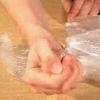
One In The Hand
Source Institutions
In this physics demonstration, learners are challenged to break a raw egg just by squeezing it. Learners will be shocked by their inability to complete the deceivingly simple challenge.
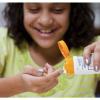
Invisible Sunblock
Source Institutions
In this activity, learners find out why some mineral sunblock rubs in clear. Learners compare nano and non-nano sunblocks and discover how particle size affects visibility.
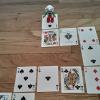
Coding Algorithms
Source Institutions
In this activity, learners will code an algorithm to make it through a maze.
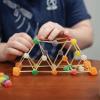
Building Bridges
Source Institutions
In this activity, learners explore the engineering design process and the basic mechanics behind building bridges as they build one themselves using gumdrops and toothpicks.

Marshmallow Catapult
Source Institutions
In this activity, learners explore physics by building a catapult that launches marshmallows with household objects.
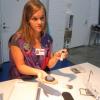
Aerogel
Source Institutions
This activity/demo introduces learners to aerogel, a glass nanofoam. Learners discover how aerogel is made and how well it insulates as well as learn about aerogel's other unique properties.

Design a Grabbing Tool
Source Institutions
Using simple materials from around the house and recycled materials, learners will engineer a grabber device to pick up and put down objects that are at least 12 inches away.
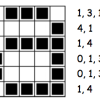
Colour by Numbers: Image Representation
Source Institutions
This activity shows learners how computers use numbers to represent pictures. A grid is used to represent the pixels (short for picture elements) of a computer screen.

Gumdrop Chains and Shrinky Necklaces
Source Institutions
In this activity, learners thread gumdrops together to make a model of a polymer.

Harvesting Chemicals from a Battery
Source Institutions
In this activity, learners take apart a used zinc-carbon dry cell battery.
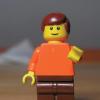
Lego Man Jump
Source Institutions
In this activity, learners are challenged to create a parachute using easily sourced materials in order to transport a LEGO figure safely to the ground.

Hail Storm House
Source Institutions
In this activity, learners construct hail-proof houses using recycled materials to discuss storm readiness and safety.
Magnus Glider
Source Institutions
A design challenge that takes paper airplanes into an entirely different direction: a magnus glider uses cups and and rubber bands to create a glider that uses the same forces that a curveball (from b
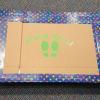
Paper Cup Stool
Source Institutions
In this activity, learners will explore how and why weight distribution works.
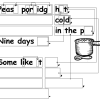
You Can Say That Again!: Text Compression
Source Institutions
This activity helps students learn how computers "compress" text by identifying repeating patterns of letters, words, and phrases.

Coffee-Can Cuíca
Source Institutions
Make a cuíca (“kwee-ka”), a traditional Brazilian musical instrument that originated in Africa. Played primarily in Brazil, now you can play it at home, too, with this Exploratorium produced activity.
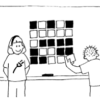
Card Flip Magic: Error Detection & Correction
Source Institutions
This magic trick is based on how computers detect and correct data errors.
Dowels and Rubber Bands I
Source Institutions
If you have 3-foot dowels and rubber bands, you can can started on this fun and open design challenge. You can make structures big and small: make it so you can fit your parent into it!
